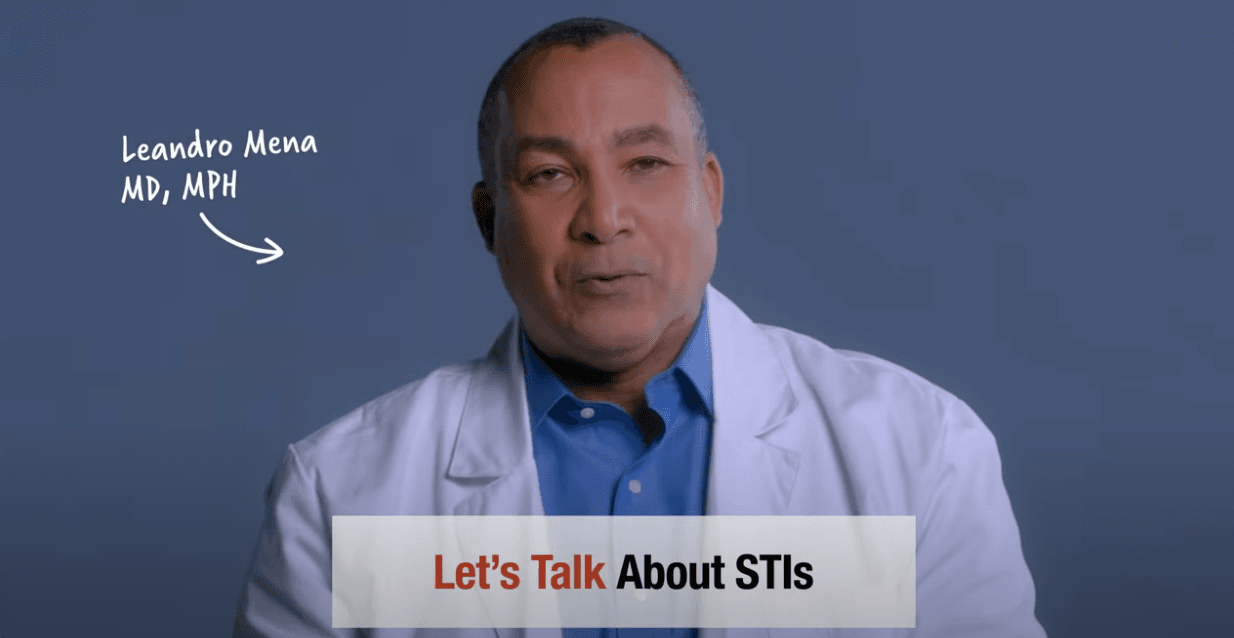Ask Me Anything About STIs
Got questions about STIs and sexual health? Get the latest from infectious disease experts, from STI testing, to pregnancy, congenital syphilis and more! These videos are a joint production of KFF’s GREATER THAN and CDC’s LET’S STOP HIV TOGETHER. Click on the title to be taken to the video.

Conversations
Nearly 1 in 5 people in the U.S. have a sexually transmitted infection (STI). STIs can be prevented and treated. Honest and open conversations, both with your provider and sexual partner(s), are an important part of keeping yourself and your partner(s) safe from infection. Here are some ways to start the conversations.
Partner Conversation Tips
- Don’t Avoid the Conversation Talk with your partner(s) BEFORE having sex so you can both make informed choices about your sexual health.
- Be Open and Honest Be clear with your partner about the number of sexual partners you have.
- Be Understanding Being respectful and nonjudgmental can create the space for a more productive conversation, and if you want, lay the groundwork to keep those conversations going.
- Let Them Know Tell your partner if you have an STI, even if you’re currently taking medicine to treat those infections.
- Ask When They Were Last Tested Find out when they were last tested for STIs. You could consider getting tested together.
Provider Conversation Tips
Talking about your sexual health might make you feel uncomfortable or embarrassed. If you talk openly and honestly with your provider about your body and concerns, they can give you better care and advice. You have the right to get full and accurate information about sexual health. And remember, it is your provider’s job to help you take care of your whole body.
Here are some ways you could start the conversation:
- “I just saw an article about high rates of sexually transmitted infections. What can I do to protect myself?”
- “I know I’m here to get a check-up, but can we talk about my sexual health for a few minutes? I have some questions.”
- “I’m in a new relationship, and I’m not sure about the best ways to protect myself from infections and getting pregnant.”
Sample questions you might ask during your visit:
Screening and Testing
- What tests are you giving me?
- How are they done?
- When and how will I get my results?
Sexually Transmitted Infections
- Based on my history, should I be tested for STIs, including HIV? Which ones?
- How often should I be tested for STIs?
- Should my partner get tested, too?
- Are there any vaccines I should get to protect myself from STIs?
- How can I protect myself from getting STIs?
- If I have an STI, can it be treated?
More Information on Individual STDs
Learn more about individual STIs and STDs and their diagnosis, treatment, and screening recommendations by clicking on each individual condition.
- Bacterial Vaginosis. BV is a common, treatable, vaginal condition which can increase your chance of getting an STD.
- Chlamydia. Chlamydia is a common, but treatable, STD. If left untreated, chlamydia can make it difficult for a woman to get pregnant.
- Gonorrhea. Gonorrhea is a common STD that can be treated with the right medication. If left untreated, gonorrhea can cause very serious health problems.
- Hepatitis. Viral hepatitis is the leading cause of liver cancer and the most common reason for liver transplants.
- Herpes. Genital herpes is a common STD, but most people with the infection do not know they have it. While there is no cure, there are medicines available that can prevent or shorten outbreaks. These medicines also can make it less likely to pass the infection on.
- HIV/AIDS & STDs. People who have STDs are more likely to get HIV, when compared to people who do not have STDs.
- Human Papillomavirus (HPV) Infection. HPV is the most common STI in the United States, but most people with the infection have no symptoms. HPV can cause some health effects that are preventable with vaccines.
- Mycoplasma genitalium (Mgen). Mycoplamsa genitalium, or Mgen is an STD that can be treated with antibiotics. People receiving treatment for Mgen should take all of the medication as prescribed.
- Pelvic Inflammatory Disease (PID). PID can lead to serious consequences including infertility.
- STDs & Infertility. Chlamydia and gonorrhea can cause PID and infertility, but both are preventable.
- STDs during Pregnancy. For a healthier baby, ask your doctor about STD testing.
- STDs and Oral Sex. Many sexually transmitted diseases (STDs) spread through oral sex.
- Syphilis. Syphilis can have very serious problems when left untreated. It is simple to cure with the right treatment.
- Trichomoniasis. Most people who have trichomoniasis do not have any symptoms.
- Other STDs. Chancroid, scabies, and more.


